- Home
- Martin Cruz Smith
Tatiana ar-8
Tatiana ar-8 Read online
Tatiana
( Arkady Renko - 8 )
Martin Cruz Smith
Martin Cruz Smith
Tatiana
PROLOGUE
It was the sort of day that didn’t give a damn. Summer was over, the sky was low and drained of color, and dead leaves hung like crepe along the road. Into this stillness dashed a cyclist in red spandex, pumping furiously, taking advantage of the flat terrain.
Joseph spoke six languages. In restaurants he spoke French, with tradesmen he preferred Chinese and he dreamed in Thai. He was a one-man crowd. It meant that he could travel and find work anywhere in the world. The United Nations sent him one place and the European Union sent him somewhere else. Always, he took his black custom-made bike, his designer jersey and shorts, his molded saddle and tear-shaped helmet. He had started biking too late in life to be a competitive racer, but he could astonish the locals at most rallies. Anyway, winning didn’t matter. It was the tension, the feeling of a drawn bow, that he found most satisfying. At this point he calculated he had ridden twice around the world. He’d never married. His schedule wouldn’t allow it. He felt sorry for saps stuck on tandem bikes.
He loved word games. He had a photographic memory-an eidetic memory, to be exact. He could look at a crossword puzzle and play it out in his mind while he biked, teasing out those words that existed only in crossword puzzles: ecru, ogee, amo, amas, amat. A clue that was not in English was all the easier. A tort was a civil action; a torte was a piece of cake. A full-grown anagram could occupy his mind from Toulon to Aix-en-Provence. He had the afternoon off, and he needed it after interfacing in Russian and Chinese. When the two sides broke early, the interpreter seized the opportunity to ride.
He prided himself on finding routes out of the ordinary. His idea of hell was being in Tuscany or Provence stuck behind tourists wobbling on and off the road in rented bikes as they worked off a lunch of cheese and wine. Elastic pockets in the back of his jersey held water bottles, energy bars, a map and repair kit. He was willing to patch a tire or two if he could have a new vista to himself. Kaliningrad had a reputation of being ugly and crime ridden, a city that was an orphan or bastard or both. Escape the city, however, and, voilà, a pastoral delight.
He was born to translate; his father was Russian, his mother French, and both were Berlitz instructors. In boarding school he spread a rumor that they were dead, tragically killed in a car crash in Monte Carlo, and became the boy most invited for the holidays by wealthy classmates. He was ingratiating and sometimes he imagined ending his days as a guest in a villa not far from the sea. He still sent his parents a card at Christmastime, although he hadn’t seen them for years.
He interpreted for film stars and heads of state, but the most lucrative work was corporate negotiations. They were usually carried out by small teams operating in strict confidentiality and an interpreter had to be omnipresent yet nearly invisible. Most of all, he had to be discreet, trusted to forget what he heard, to wipe the slate clean when the job was done.
As the road became a country lane he flew past occasional ruins of brick smothered by lilacs. Fortunately, there was almost no traffic. He navigated pothole after pothole and, at one point, rode through asphalt as humped as waves. A butcher’s van with a plastic pig on the roof came the opposite way and seemed to aim straight at the bike until they passed like ships at sea.
In fact, the interpreter had not erased everything. There were his notes. Even if the notes were stolen, they would be safe, because nobody could read them but himself.
The road ended at a desolate parking area with a shuttered kiosk and a billboard of events past. An ice-cream cart lay on its side. Everything described postseason ennui. Nevertheless, when he heard the screech of gulls he got off his bike and carried it over the brow of a dune to a view of a beach that stretched in either direction as far as he could see and wavelets that advanced in regular order. Mist turned the sea and sky into luminous bands of blue. Sand skipped in the wind and nestled into beach grass that grew among the dunes. Rough wooden beach umbrellas, stripped of canvas, stood guard, but no one else was in view, which made it perfect.
He set the bicycle down on the sand and removed his helmet. This was a find. This was the sort of mini-adventure that would make for a good story around the fireplace with a glass of red wine and a captivated audience. A little derring-do to cap his career. To give it significance; that was the word.
Although the air was cool, Joseph was warm from cycling, and he removed his biking shoes and socks. The sand was fine, not like the loose stones of most resorts, and unspoiled, probably because Kaliningrad had been a closed city during the Cold War. Water rushed up, hissed around his feet, and drew back.
His reverie was interrupted by the approach of a vehicle rolling like a drunken sailor across the beach. It was the butcher van. The plastic piggy, pink and smiley, rocked from side to side until the van came to a stop and a man about thirty years old with a homburg and stringy hair climbed out. A dirty apron fluttered around him.
“Looking for amber?”
Joseph asked, “Why would I be looking for amber?”
“This is the place. But you have to wait for a storm. You have to wait for a storm to rile up all the amber.”
Roil, not rile, Joseph thought, but let it pass. Joseph detected nothing in common with the man, no intellect to engage with. Sooner or later the character would demand money for vodka and they’d be done.
“I’m waiting for friends,” Joseph said.
The tilt of the homburg lent the butcher an antic air. He seemed dizzy or drunk-in any case, so amused at a private joke that he stumbled into the bike.
“Idiot! Watch where you’re going!” Joseph said.
“Sorry, real sorry. Say, is this Italian?” The butcher picked up the bicycle by its top rail. “S’fucking beautiful. You don’t see many of these in Kaliningrad.”
“I wouldn’t know.”
“You can take my word for it.”
Joseph noticed that the butcher’s hands were nicked and raw from handling frozen beef, and his apron was suitably daubed with liverish stains, although his sandals were hardly appropriate footwear for slippery ice lockers.
“Can you give me the bike, please? The last thing I want is sand in the gears.”
“No problem.” The butcher let the bike drop and brightly asked, “Holidays?”
“What?”
“It’s a question. Are you here on holidays or business?”
“Holidays.”
The butcher’s face split into a grin. “Really? You came to Kaliningrad for a vacation? You deserve a medal.” He pretended to pin a decoration to Joseph’s chest. “Give me the highlights of Kaliningrad. Like, what did you see this morning?”
Joseph had worked all morning, not that it was anyone else’s concern, but the butcher produced a nickel-plated pistol that he weighed in his hand like loose change. What had been to Joseph a cool breeze now gave him a chill, and grains of sand stuck to the sweat on his skin. Maybe this was an ordinary shakedown. No problem. He would pay whatever was asked and be reimbursed by the client.
“Are you the police?”
“Do I look like the fucking police?”
“No.” Joseph’s heart sank. He had been trained to be calm and cooperative in hostage situations. The statistics were actually reassuring. People only got killed when someone tried to be a hero. “What do you want?”
“I saw you at the hotel with those people. They’re surrounded by bodyguards and have a whole floor to themselves.” The butcher became confidential. “Who are they?”
“Businessmen.”
“International business or they wouldn’t need an interpreter, right? Without you, everything comes to a halt. The machinery st
ops, doesn’t it? The big wheel is stopped by the little wheel, isn’t that so?”
Joseph was uneasy. This was Kaliningrad, after all. The pig glowed, happy to go to the abattoir. Joseph contemplated running from this madman. Even if he didn’t get shot, he would have to abandon his bike; the sand was too deep and soft for the tires. The entire scene was demeaning.
“I just interpret,” Joseph said. “I’m not responsible for content.”
“And take notes of secret meetings.”
“Totally legal. The notes simply aid my memory.”
“Secret meetings or you wouldn’t be in Kaliningrad; you’d be living it up in Paris.”
“It’s sensitive,” Joseph conceded.
“I bet it is. You have a real skill. People run at the mouth and you translate it word for word. How do you remember it all?”
“That’s where the notes come in.”
“I’d like to see those.”
“You wouldn’t understand them.”
“I can read.”
Joseph was quick to say, “I wasn’t suggesting that you couldn’t, only that the material is highly technical. And they’re confidential. We’d be breaking the law.”
“Show me.”
“I honestly can’t.” Joseph looked around and saw nothing but gulls patrolling the beach in case food appeared. No one had told the gulls that the season was over.
“You don’t get it. I don’t need to know the ins and outs. I’m a pirate like those Africans who hijack tankers. They don’t know a dog’s turd about oil. They’re just a few black bastards with machine guns, but when they hijack a tanker they hold all the cards. Companies pay millions to get their ships back. The hijackers aren’t going to war; they’re just fucking up the system. Tankers are their targets of opportunity and that’s what you are, my target of opportunity. All I’m asking is ten thousand dollars for a notebook. I’m not greedy.”
“If you’re just an errand boy that changes everything.” Immediately, Joseph understood that it was the wrong thing to say and the wrong way to have said it. It was like poking a cobra. “Let me. . show. .” Joseph reached around and wrestled with the pockets of his jersey, spilling a water bottle and energy bars until he found a notebook and pencils.
“Is this it?” the butcher asked.
“Yes, only it’s not what you expect.”
The butcher opened the notebook to the first page. Flipped to the second page, the third and fourth. Finally, he raced to the end.
“What the fuck is this? Pictures of cats? Doodles?”
“That’s how I take notes.” Joseph couldn’t help a hint of pride.
“How do I know these are the notes?”
“I’ll read them to you.”
“You could say anything you fucking please. What am I supposed to show them?”
“Who is them?”
“Who do you think? These people, you fuck with them, they fuck with you.”
His employers? If he could just explain.
“My notes-”
“Are a joke? I’ll show you a joke.” The butcher dragged Joseph to the back of the van and opened the rear door. Out of the interpreter’s many languages, the only word that came to mind was Jesu. Inside the van, two skinned lambs hung upside down, looking cold and blue.
Joseph couldn’t find more to say. He couldn’t even find the air.
“Let the birds read it.” The butcher cast the notebook into the wind, then tossed Joseph into the back of the van and climbed in after.
From everywhere gulls materialized. They descended as a succession of thieves, each robbing the other. Every scrap from Joseph’s pockets was snatched and inspected. A tug-of-war developed over a half-eaten energy bar. The birds were momentarily startled by a shot and a winner flew off, trailed by other gulls and screams of outrage. The rest settled into a sullen peace facing the wind. As the haze retreated, a horizon appeared and waves rolled in with the sound of beads spilled on a marble floor.
1
Time did not stand still at Vagankovo Cemetery, but it slowed. Leaves drifting from poplars and ash spread a sense of relief, informality and disrepair. Many sites were modest, a stone and bench in a wrought iron enclosure going to rust. A jar of flowers or a pack of cigarettes was evidence of care for ghosts that were at last allowed to indulge.
It could be said that Grisha Grigorenko had always indulged. He had lived in a grand manner and was going out the same way. For days, Senior Investigator Arkady Renko and Detective Sergeant Victor Orlov had trailed the dead man around Moscow. They started with an eviscerated Grisha at the morgue, followed by an herbal rinse and makeup at a spa. Finally, dressed and aromatic, the body was rolled out for view in a gold-plated coffin on a bed of roses in the basilica of the Cathedral of Christ the Redeemer. Everyone agreed that Grisha looked, considering the hole in the back of his head, pretty good.
For a senior investigator like Renko and a detective sergeant like Orlov, surveillance of this nature was fairly demeaning, a task that a ticket taker at a movie theater could have performed. The prosecutor had directed them to “note and photograph. Stay at a distance from the funeral cortege to watch only. Use discretion and make no contact.”
They made a pair. Arkady was a thin man with lank dark hair who looked incomplete without a cigarette. Victor was a bloodshot wreck who substituted Fanta for vodka. Or tried. Because of his drinking no one dared work with him but Arkady. As long as he was working a case, he was sober and a good detective. He was like a hoop that stayed upright as long as it was moving, and fell when it stopped.
“ ‘Make no contact,’ ” Victor said. “It’s a funeral. What does he expect, arm wrestling? Hey, that’s the weather girl from television.” A blonde in black unfolded from a Maserati.
“If you wave, I’ll shoot you.”
“See, it’s even getting to you. ‘Use discretion.’ For Grisha? He might have been a billionaire but he was still a glorified leg breaker.”
There were two Grishas. There was the public benefactor, patron of charities and the arts, and a leading member of the Moscow Chamber of Commerce. Then there was the Grisha who had his thumb in drugs, arms and prostitution.
The funeral party was similarly mixed. Arkady spotted billionaires who had their arms around the nation’s timber and natural gas, lawmakers who were sucking the state treasury dry, boxers who had become thugs, priests as round as beetles, models hobbling on stiletto heels and actors who only played assassins rubbing shoulders with the real thing. A green carpet of artificial grass was unrolled along the front row, where heads of the Moscow underworld surfaced in all their variety, from the old boys like Ape Beledon, a gnome in a coat and cap of Persian lamb, and his two burly sons; to Isaac and Valentina Shagelman, experts in insolvent banks; and Abdul, who had evolved from Chechen rebel to automobile smuggler and, in a dramatic career move, hip-hop artist. When Victor raised a camera, one of Beledon’s sons blocked his view.
“This is fucked.” It was Victor’s favorite expression. This football game was fucked, this card game was fucked, this salad was fucked. He was constantly fucked. “You know what gets me?”
“What gets you?”
“We’re going to go back with two hundred images in a digital camera of everyone at this fucked-up hole in the ground and the precinct commander is going to say, ‘Thank you very much,’ and then erase it right before my eyes.”
“Feed it to a laptop first.”
“That’s not the point. The point is, you can’t win. We’re just playing it out. I could have spent a nice day in bed passed out and pissing drunk.”
“And I interrupted that?”
“You did. I know you meant well.”
A priest droned, “Blessed are those whose ways are blameless, who walk in the way of the Lord.” A golden crucifix swayed at belly level; a golden Rolex shone on his wrist.
Arkady needed a break. He took a turn around the cemetery, browsing among the headstones. It could be said it was his favorite sta
tuary. In black marble, a grandmaster glowered over a chessboard. In white marble, a ballerina floated through the air. There was whimsy too. A woodland spirit rose from a writer’s grave. A comedian cast in bronze offered a fresh carnation. On modest patches of grass, the living could sit on a bench and carry on a conversation with someone long departed.
Alexi Grigorenko stepped in Arkady’s way. “My father can’t be buried in peace? You’re going to hound him to his grave?”
“My condolences,” Arkady said.
“You’re interrupting a funeral.”
“Alexi, it’s a cemetery,” Arkady said. “Everyone is welcome.”
“This is harassment, and it’s fucking sacrilegious.”
“Is that how they speak in business school in America?”
Alexi said, “You weren’t invited.”
Alexi was a sleeker version of his father, stylishly unshaven, his hair curled at the collar with gel. He was part of a new generation that attended business forums in Aspen and skied in Chamonix and he let it be known that he expected to lead the family to the next rung of legitimacy.
Meanwhile there was a genuine disturbance at the cemetery gate, where the grave diggers were turning away a group bearing posters. Arkady didn’t catch what the issue was, but he did glimpse a photojournalist he knew. Anya Rudenko lived across the hall from his flat and sometimes occupied his bed. She was young and full of life and what she saw in Arkady was a mystery to him. Why she was in the cemetery, he had no idea, and she shot him a look that warned him not to approach. No stylish celebrities or sleek Mafia here. Anya’s friends were writers and intellectuals capable of folly but not of crime, and after a momentary fuss, they turned down the street and she stayed with them.
The priest cleared his throat and suggested to Alexi, “Maybe we should proceed to the eulogy before, you know, anything else happens.”
It had to be more than a eulogy, Arkady thought. This was Alexi’s introduction to many of the mourners, a tough audience. So far as they were concerned he was as likely to lose his head as wear a crown.

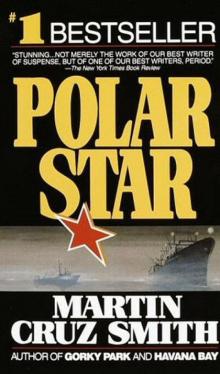 Polar Star
Polar Star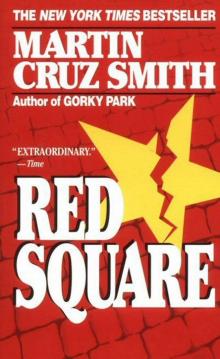 Red Square
Red Square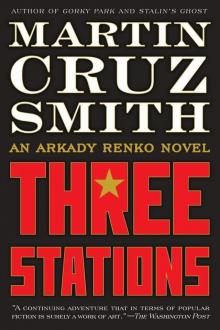 Three Stations
Three Stations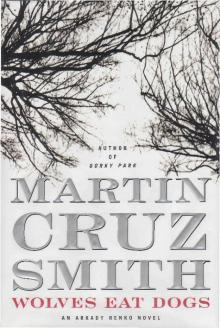 Wolves Eat Dogs
Wolves Eat Dogs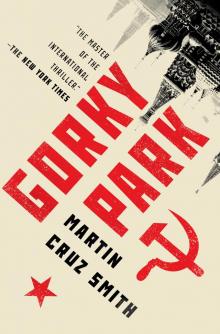 Gorky Park
Gorky Park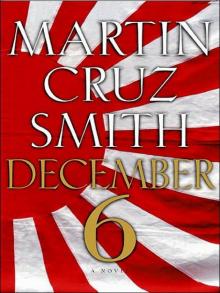 December 6
December 6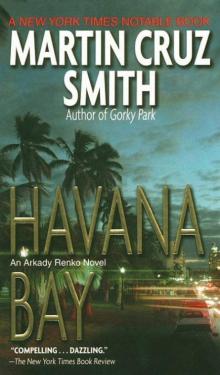 Havana Bay
Havana Bay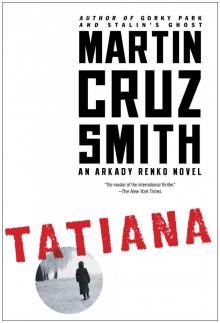 Tatiana
Tatiana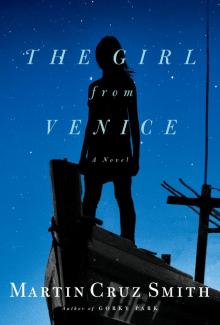 The Girl From Venice
The Girl From Venice Stalin's Ghost
Stalin's Ghost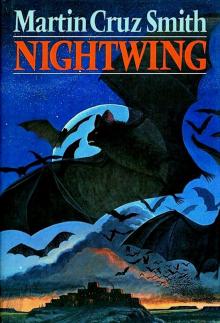 Nightwing
Nightwing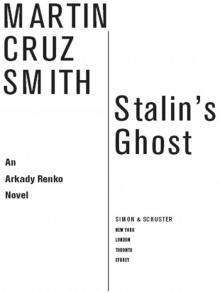 Stalin s Ghost
Stalin s Ghost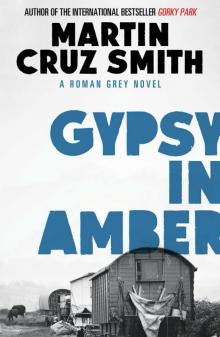 Gypsy in Amber
Gypsy in Amber Rose
Rose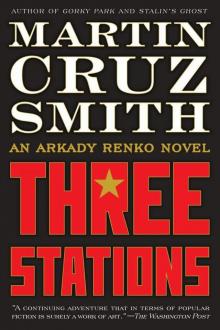 Three Stations: An Arkady Renko Novel
Three Stations: An Arkady Renko Novel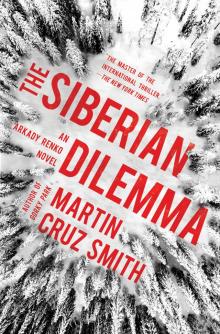 The Siberian Dilemma
The Siberian Dilemma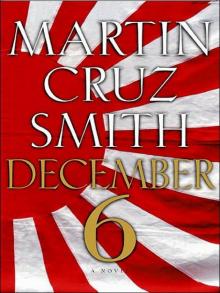 December 6 (V5.0)
December 6 (V5.0)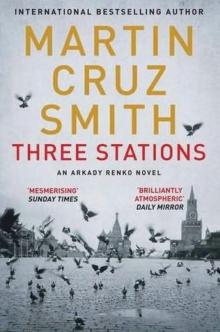 Three Stations ar-7
Three Stations ar-7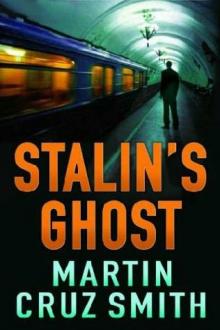 Stalin’s Ghost ar-6
Stalin’s Ghost ar-6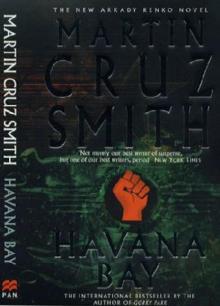 Havana Bay ar-4
Havana Bay ar-4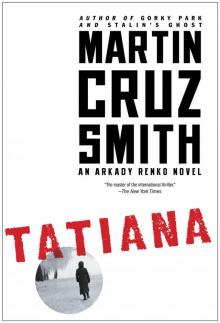 Tatiana ar-8
Tatiana ar-8